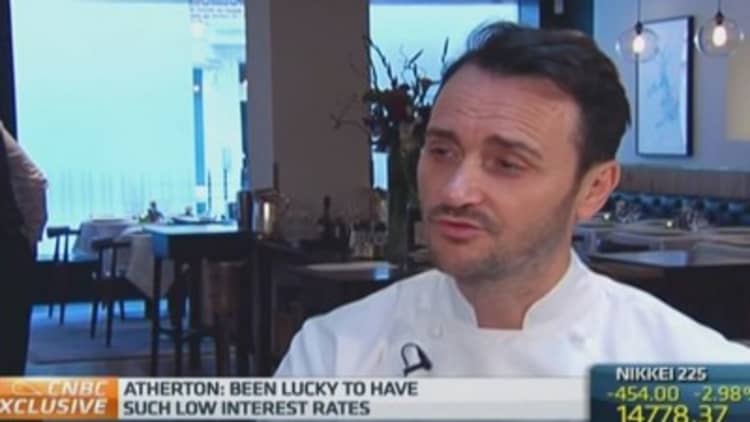
It defies logic when consumption habits fundamentally changed in the financial crisis that only a few years on conspicuous consumption is back on the fine dining scene. The hippest restaurants in London can take up to four months to secure a booking. But are hedonistic times in the capital numbered as London dines out on a property market bubble and record low interest rates?
Chef of the moment Jason Atherton who has fourteen restaurants globally, including the opulent Berners Tavern in London, said high-end restaurants are here for the long haul. The industry weathered the downturn, but needed to reform to appeal to value- conscious consumers.
" I don't think it was ever a case of restaurants dying out or the financial crisis destroying fine dining. It was always going to be there to stay," said Atherton.
He believes restaurants were forced to overhaul the way they charged customers, stripping out parts that were irrelevant to the experience. He calls it "deformalizing fine dining" which has made restaurants more relevant to today's market.
A corner table or banquette seat in Berners Tavern can take more than one quarter of the business calendar to secure, but that's no different to reserving a seat in rival hipster restaurant Chiltern Firehouse.
"We live in a very media-driven world. Those are two different examples of really great PR when they launched, a lot of top celebrities use those restaurants, a lot of CEOs. People want to be seen in those types of restaurants and you get this massive entourage of people just flowing through the doors which makes it then harder to book. When all is dead and buried and finished, you still want the restaurant to stand on its own two feet and be really worthy of having that recognition," said Atherton.
Read MoreWhereare the world's best restaurants?
Those who have looked past the menu and pored through the books of a restaurant know how tough a game it is to stay in business. Competing interests of having enough staff to produce Michelin star-worthy meals and forking out enough on rent for a spectacular dining room are matched against the overarching goal of keeping overheads low enough to make money.
"You've got to get your numbers right. It's like any business. If you get your numbers wrong you'll die horribly. Because if you're relying on a restaurant to be fully booked just to make a small buck, then it's a real dangerous place to be in. So our business plan is very simple. If we can fill our restaurants 60 percent and still make a profit, then we'll dive into that restaurant deal" said Atherton.


